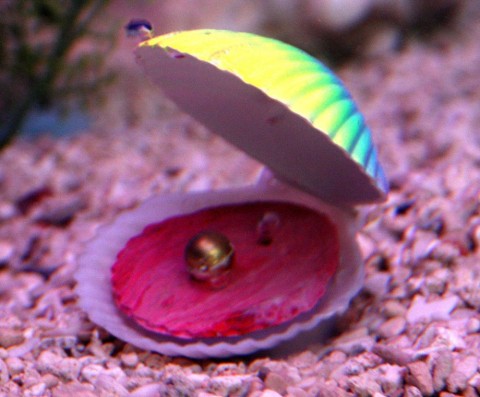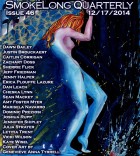They built it themselves, out of nothing, but complaints from summer-home owners across the marsh are now reliable as the tides, and the once-steady stream of customers has shriveled to a runnel. So they pack it up, all of it, into two suitcases: the amorous pair of bottlenose dolphins; the herd of whiskered, barking harbor seals; two dozen hermit crabs in their commandeered shells, rattling like marbles; seahorses, sea-stars, a deflated puffer fish resigned to its new cartoon-flattened dimensionality.
“A little like us,” she says, a wink barely holding together the pieces of her cracking voice. But flat is not quite what he feels.
More: bullhorns, hoops and whistles, plastic buckets and other props, some dating to JFK and redolent of his era’s quaint optimism: sea-blue, sand-white and spangled-red, and used in how many shows across the decades? The snack machine and soda fountain, the freezer chest and popcorn popper. Filters and pumps and the sixty-thousand-gallon saltwater tank. Souvenir crap: pink sweatshirts and macram bracelets and glass lamp shades engraved with the likeness of the first bottlenose, christened Spray, whose image became the logo, carved into the wooden sign at the parking lot entrance by that sleepy Provincetown carpenter with the bits of seaweed in his beard. The sign goes in too. And finally, Humphrey the Camel, all clattering joints and sputtering refusal—”Ship of the Desert!” reads the placard strung around its neck.
“What were we ever thinking with him?” she asks.
“Our second most popular attraction,” he reminds her, sitting on the lid of the suitcase to force Humphrey in, “after the dolphins.”
“Rather a stretched metaphor, though, isn’t it?”
He looks around. Everything is gone, as if swept off a table and hurriedly bundled into the tasseled cloth on which it had rested all these years, her Thunderbird and his Bonneville previously donated to benefit the blind, the parking lot already gone to weed. He hoists a suitcase in each hand, testing their weights. “Ready?”
“About that,” she says, looking guiltily at her feet. “I seem to have put down roots.”
With this he can’t argue. Sturdy legs planted, she is steady as a tree, like something out of a Greek myth. Arms raised in a Y as if imploring the gods for rain. Loosened hair not hanging so much as spread, canopy-like, to welcome inquiring shorebirds. He leaves her behind, much as he prefers not to. Soon his feet are slapping pavement, soles separating from his shoes as the miles accumulate. A man approaches; recognition animates his jowly face.
“Hey! Remember me? I used to work for you. Summers, mid-eighties.”
His reflex is to take the hand offered, but, well, with the suitcases. Besides, if he’s not mistaken, it’s the smart-ass college kid who quit without notice one July afternoon, leaving them all in the lurch but not before seducing half the snack-bar staff. The pretty half, he recalls. Funny what a boss knows.
“How are you these days?” the old employee asks.
“A bit battered, if you want to know the truth.”
Inside one of the suitcases, the dolphins are at it again, a happily indefatigable couple. From the other come Humphrey’s muffled snorts and wheezes, answered by the protesting whine of one of the seals—Earl? Dennis? There was a time he could identify each by the noise it made. “Pipe down in there,” he mutters, thinking of their old radio spot: The Cape’s No. 1 summertime source of fun.
“Looks like you’re traveling heavy,” the old employee says, eyeing the suitcases.
“Maybe,” he allows, and a day later, passing a plate-glass storefront, he catches sight of himself: Tall as ever, if hunched, the vein at the side of his skull pulsing with the arriving tide, a widening channel through which the onrushing ocean now spills, filling his ruined shoes and rising up over his ankles. Old and more than a bit battered, with two overpacked suitcases and no dry land on which to set them down.



 The core workshop of SmokeLong Fitness is all in writing, so you can take part from anywhere at anytime. We are excited about creating a supportive, consistent and structured environment for flash writers to work on their craft in a community. We are thrilled and proud to say that our workshop participants have won, placed, or been listed in every major flash competition. Community works.
The core workshop of SmokeLong Fitness is all in writing, so you can take part from anywhere at anytime. We are excited about creating a supportive, consistent and structured environment for flash writers to work on their craft in a community. We are thrilled and proud to say that our workshop participants have won, placed, or been listed in every major flash competition. Community works.